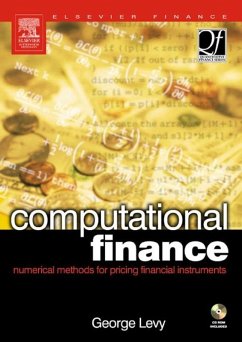Computational Finance presents a modern computational approach to mathematical finance within the Windows environment, and contains financial algorithms, mathematical proofs and computer code in C/C++. The author illustrates how numeric components can be developed which allow financial routines to be easily called by the complete range of Windows applications, such as Excel, Borland Delphi, Visual Basic and Visual C++.These components permit software developers to call mathematical finance functions more easily than in corresponding packages. Although these packages may offer the advantage of interactive interfaces, it is not easy or computationally efficient to call them programmatically as a component of a larger system. The components are therefore well suited to software developers who want to include finance routines into a new application.Typical readers are expected to have a knowledge of calculus, differential equations, statistics, Microsoft Excel, Visual Basic, C++ and HTML. - Enables reader to incorporate advanced financial modelling techniques in Windows compatible software - Aids the development of bespoke software solutions covering GARCH volatility modelling, derivative pricing with Partial Differential Equations, VAR, bond and stock options
Dieser Download kann aus rechtlichen Gründen nur mit Rechnungsadresse in A, B, BG, CY, CZ, D, DK, EW, E, FIN, F, GR, HR, H, IRL, I, LT, L, LR, M, NL, PL, P, R, S, SLO, SK ausgeliefert werden.









